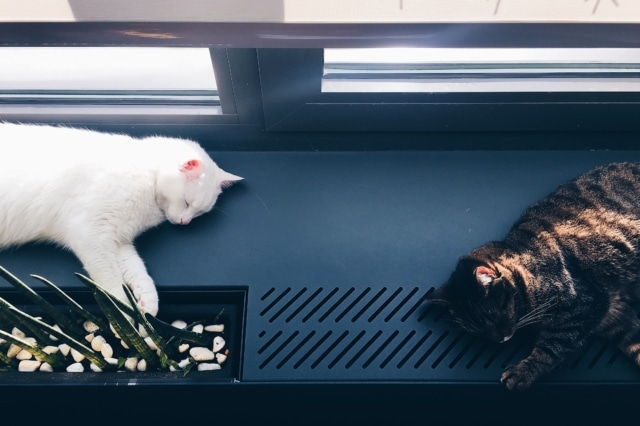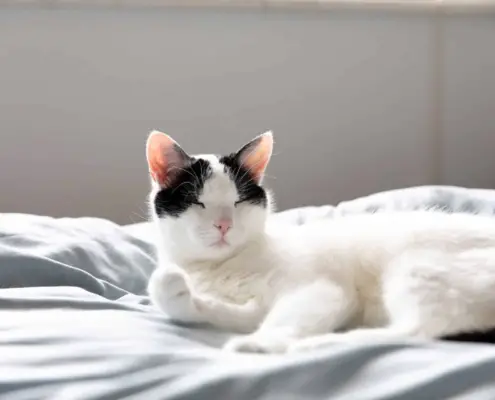
Anemia is a common health condition that affects cats. It occurs when there is a decrease in the number of red blood cells or a decrease in the amount of hemoglobin in the blood. In this article, we will explore the causes, symptoms, and treatment options for anemia in cats, as well as ways to prevent and support cats with this condition.
Introduction to Anemia in Cats
Anemia in cats can be caused by a variety of factors, including underlying health conditions, nutritional deficiencies, and certain medications. It is important for cat owners to be aware of the signs and symptoms of anemia, as early detection and treatment can greatly improve a cat’s quality of life.
What Causes Anemia in Cats
There are several potential causes of anemia in cats. One common cause is chronic kidney disease, which can lead to a decrease in the production of red blood cells. Other possible causes include infections, autoimmune diseases, and certain types of cancer. Additionally, flea infestations can cause anemia in cats, as the parasites feed on their blood.
Common Symptoms of Anemia in Cats
Recognizing the symptoms of anemia in cats is crucial for prompt intervention. Some common signs include pale gums, lethargy, weakness, rapid breathing, and loss of appetite. Cats with anemia may also experience weight loss, vomiting, and diarrhea. If you notice any of these symptoms in your cat, it is important to consult with a veterinarian for a proper diagnosis.
Diagnosing Anemia in Cats
Diagnosing anemia in cats typically involves a thorough physical examination, blood tests, and sometimes additional diagnostic procedures. The veterinarian will evaluate the cat’s red blood cell count, hemoglobin levels, and other blood parameters to determine the severity and underlying cause of the anemia. This information will help guide the appropriate treatment plan.
Different Types of Anemia in Cats
There are different types of anemia that can affect cats. Regenerative anemia occurs when the body is actively producing new red blood cells in response to an underlying condition. Non-regenerative anemia, on the other hand, is characterized by a decreased ability of the body to produce new red blood cells. Each type of anemia may require different treatment approaches.
Treatment Options for Anemia in Cats
The treatment options for anemia in cats depend on the underlying cause and severity of the condition. In cases of regenerative anemia, addressing the underlying cause, such as treating an infection or managing a chronic condition, is essential. Non-regenerative anemia may require blood transfusions or medications to stimulate red blood cell production. It is important to work closely with a veterinarian to develop an individualized treatment plan for your cat.
Preventing Anemia in Cats
Preventing anemia in cats involves maintaining their overall health and addressing any underlying conditions. Regular veterinary check-ups, vaccinations, and parasite prevention are important for preventing infections and other health issues that can lead to anemia. Providing a balanced and nutritious diet is also crucial in ensuring cats receive essential nutrients for red blood cell production.
Supporting a Cat with Anemia through Diet and Supplements
Diet plays a significant role in supporting cats with anemia. Feeding a high-quality commercial cat food that is specifically formulated to meet their nutritional needs is crucial. Additionally, supplements such as iron, vitamin B12, and folic acid may be recommended by a veterinarian to support red blood cell production. It is important to consult with a veterinarian before introducing any dietary changes or supplements.
When to Seek Veterinary Assistance for a Cat with Anemia
If you suspect that your cat may be suffering from anemia, it is important to seek veterinary assistance promptly. Early diagnosis and treatment can greatly improve the cat’s prognosis. A veterinarian will be able to perform the necessary tests to diagnose anemia and determine the underlying cause. They can then develop a tailored treatment plan to address the specific needs of your cat.
Key Takeaways
Anemia is a common condition that can affect cats, but with early detection and appropriate treatment, cats can lead happy and healthy lives. Understanding the causes, symptoms, and treatment options for anemia in cats is essential for cat owners. By providing a nutritious diet, preventing parasites, and seeking veterinary assistance when needed, you can help support a cat with anemia and improve their overall well-being.
If you enjoyed my article, I would appreciate you sharing it with your network.

Sima Ndlebe
Sima writes for CatBuzz. He is interested in Cats, Health and Fitness, and Entrepreneurship.
Published: 12 October 2023
Related Articles
Disclaimer
The content found on CatBuzz.org is presented on an "as is" basis and is intended for general consumer information and education purposes only. Any utilization of this information is voluntary and solely at the user's own risk.
None of the articles or content should be regarded as, or used in place of, veterinary medical advice, diagnosis, or treatment. The information provided on the website is purely for educational and informational intentions and should not be considered a substitute for professional guidance from a veterinarian or other qualified expert. The articles are designed to inform consumers about veterinary healthcare and medical matters that may impact their cat's daily life. It should be noted that this website and its services do not constitute the practice of any form of veterinary medical advice, diagnosis, or treatment. CatBuzz.org explicitly disclaims any liability for any direct or indirect damages or losses that may arise from the use of or reliance on the information contained within the content.
Consumers must consult a veterinarian, veterinary specialist, or another qualified veterinary healthcare provider when seeking advice regarding their cat's health or medical conditions. It is important not to ignore, avoid, or postpone seeking medical advice from a veterinarian or other qualified veterinary healthcare provider solely based on information obtained from this website. If you believe that your cat may be experiencing a medical issue or condition, it is imperative to promptly contact a qualified veterinary healthcare professional.



